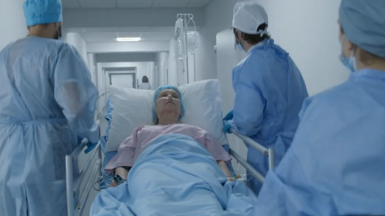Updated WHO guidance on prevention of sexual transmission of Zika virus: period of recommended preventive measures for returning travellers extended from four to eight weeks
On 7 June 2016, WHO updated its Interim guidance on prevention of sexual transmission of Zika virus, and in particular the advice to returning travellers.
On 7 June 2016, WHO updated its Interim guidance on prevention of sexual transmission of Zika virus, and in particular the advice to returning travellers.
Although the primary transmission route of Zika virus is via the Aedes mosquito, sexual transmission of Zika virus is possible and more common than previously assumed. As the current evidence base on Zika virus remains limited, WHO regularly reviews its guidance and updates the recommendations as new evidence emerges.
The latest version of the guidance updates the advice on preventive measures for travellers returning from Zika-affected areas summarised as follow:
- “Couples or women planning a pregnancy who are returning from areas where transmission of Zika virus is known to occur, are strongly recommended to wait at least 8 weeks before trying to conceive to ensure that any possible Zika virus infection has cleared; and 6 months if the male partner was symptomatic.”
- “Men and women returning from areas where transmission of Zika virus is known to occur should adopt safer sex practices or consider abstinence for at least 8 weeks upon return. If before or during that period Zika virus symptoms (rash, fever, arthralgia, myalgia or conjunctivitis) occur, men should adopt safer sex practices or consider abstinence for at least 6 months”.
Read the Guidance: Interim guidance on Prevention of sexual transmission of Zika virus
ECDC comment, 7 June:
ECDC endorses the update in the WHO recommendations on preventative measures against Zika virus infection for returning travellers and is accordingly changing its recommendation as followed.
A list of countries and territories with active transmission (sporadic and widespread transmission) during the past three months is available on the ECDC website.
Information for travellers to and EU citizens residing in areas with active transmission
- Travellers visiting countries where there is active transmission of Zika virus and EU citizens residing in these countries should:
- be made aware of the ongoing outbreak of Zika virus infection and the fact that Zika virus is usually transmitted by mosquito vectors but can be also transmitted by sexual intercourse.
- take measures to prevent mosquito bites indoors and outdoors, especially between sunrise and sunset when Aedes mosquito vectors are most active and biting. These measures include:
- The use of mosquito repellent in accordance with the instructions indicated on the product label.
- Wearing long-sleeved shirts and long trousers, especially during the hours when the type of mosquito that is known to transmit the Zika virus (Aedes) is most active.
- Sleeping or resting in screened or air-conditioned rooms, otherwise use mosquito nets, at night and during the day.
- Pregnant women and women who are planning to become pregnant and planning to travel to areas with widespread transmission should postpone non-essential travel.
- Pregnant women and women who are planning to become pregnant and planning to travel to areas with sporadic transmission should consult their physician or a travel clinic and consider postponing non-essential travel.
- Pregnant women residing in countries with active transmission (sporadic and widespread) should consult their healthcare providers for advice and follow strict measures to prevent mosquito bites.
- Travellers with immune disorders or severe chronic illnesses should consult their doctor or seek advice from a travel clinic - particularly on effective prevention measures - before travelling to countries with active transmission.
- Travellers to countries with active Zika transmission and EU citizens residing there should be advised that using condoms could reduce the risk of sexual transmission through semen.
Information for travellers returning from areas with active transmission of Zika virus
- Pregnant women who have travelled or resided in areas with active transmission should mention their travel during antenatal visits in order to be assessed and monitored appropriately.
- In order to protect the foetus, male travellers returning from areas with active transmission should consider using a condom with a pregnant partner until the end of pregnancy.
- Travellers returning from areas with ongoing Zika virus transmission should be advised to use a condom for at least 8 weeks after returning, in order to reduce the potential risk of onward sexual transmission. If before or during that period Zika virus symptoms occur, men should use condoms or consider abstinence for at least 6 months.
- Travellers, including those with immune disorders or severe chronic illnesses, showing symptoms compatible with Zika virus disease within two weeks of return from an area with active transmission are advised to contact their healthcare provider and mention their recent travel.




